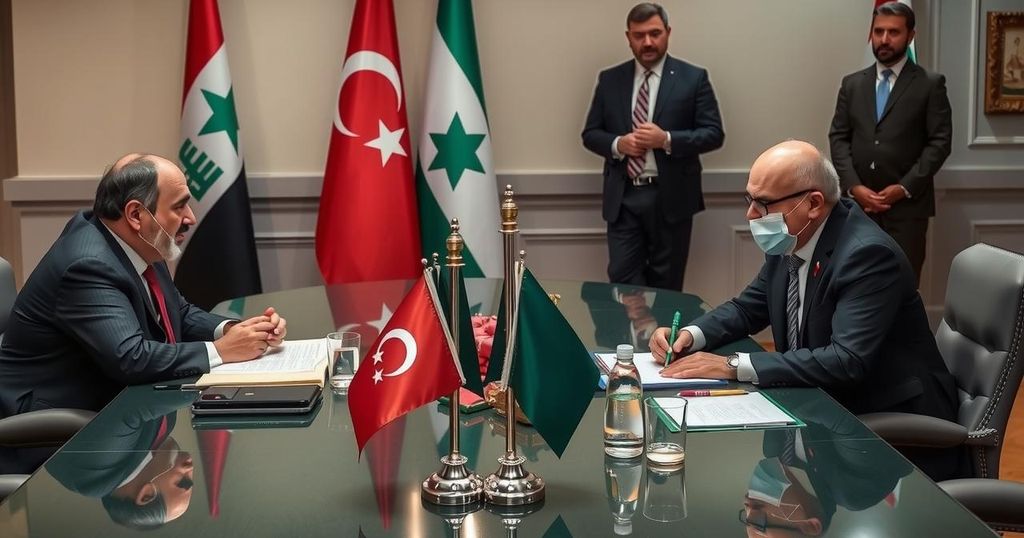A Libyan official discussed energy, migration, and diplomatic relations with Syria’s new leader, Ahmed al-Sharaa, in a significant meeting aimed at improving ties and cooperation between the two nations, particularly in light of ongoing regional challenges.
On a recent visit, a senior official from Libya’s UN-recognized government engaged in discussions with Syria’s new leader, Ahmed al-Sharaa. They covered a range of topics, including the enhancement of diplomatic relationships, energy cooperation, and strategies to address migration challenges. Walid Ellafi, Libya’s Minister of State for Communication and Political Affairs, conveyed full support for Syria’s transitional efforts and underscored the necessity of collaboration on security and military affairs.
The dialogue included attention to illegal immigration, particularly concerning the plight of Syrians who have sought refuge in Libya since the onset of the conflict in 2011. Ellafi mentioned the critical need for raising diplomatic representation, highlighting the presence of the charge d’affaires at their meeting while pursuing the appointment of a permanent ambassador. Power dynamics in Libya remain complex, with the UN-recognized government in Tripoli contending with a rival eastern administration led by military figure Khalifa Haftar. This visit marks a significant step in rekindling diplomatic ties, following the absence of Libyan representation in Syria since 2012 after the fall of Moamer Kadhafi.
Additionally, images from the Syrian state news agency SANA illustrated Sharaa’s meeting with Bahrain’s strategic security bureau chief, Sheikh Ahmed bin Abdulaziz Al-Khalifa, further signaling Syria’s efforts in regional engagement post-transition. Recent diplomatic activity includes a collective call for a peaceful transition in Syria, led by top diplomats from eight Arab nations including Bahrain, highlighting ongoing regional support for the new Syrian authorities.
The environment surrounding Libya and Syria remains dynamic, characterized by shifting alliances and the urgent need for international cooperation to address energy and migration issues stemming from long-standing regional conflicts. Both nations’ diplomatic relations are expected to progress as they navigate this crucial transitional period.
The context surrounding this meeting between Libya’s government representative and Syria’s new leader stems from a significant political shift in Syria. Following the overthrow of President Bashar Assad, the region has experienced a reconfiguration of diplomatic relationships and power structures. Libya, grappling with its own divided governance, is looking to engage more deeply with Syria to address mutual concerns, especially regarding energy and migration. The challenges faced by migrants, particularly Syrians fleeing their own country’s civil war, have necessitated a collaborative approach between these nations. This meeting is part of a broader trend of Arab countries seeking to re-establish ties with Syria and their new leadership while addressing pressing regional issues.
In summary, the meeting between Libyan Minister Walid Ellafi and Syrian leader Ahmed al-Sharaa represents a pivotal moment in restoring diplomatic relations between Libya and Syria. Their discussions focused on critical issues such as migration, energy collaboration, and military cooperation, underscoring the need for regional solidarity in navigating the transitional landscape post-Assad. As both nations work towards strengthening ties, their ability to address common challenges will be paramount in fostering stability in the region.
Original Source: www.barrons.com






